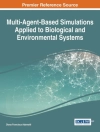This book collects the contributions presented at the 3rd International Conference on Sustainable Buildings and Structures ICSBS2023 (Suzhou, China, 17-20 Aug 2023). This conference represents a effort of Design School of Xi’an Jiaotong-Liverpool University, together with international and local co-organizing partners from academia, industry, and professional societies. The collection aims at sharing the state-of-the-art sustainable approaches for future carbon neutrality in the built environment. This work covers a wide range of topics, including sustainable materials and infrastructures, green building design and engineering, smart construction engineering and management, sustainable urbanism and architecture, circular economy, and innovation in education for sustainable development. The contributions were selected through a rigorous peer-review process internationally. They presented the state-of-the-art ideas and approaches in engineering practices and education towards achieving acarbon-neutral tomorrow in the built environment. The collection will be of interest to academics, professionals, industry representatives, and local government officials involved in civil engineering, architecture, urban planning, structural engineering, construction management, and other related fields. The readers will be inspired by novel techniques and ideas of carbon-neutral sustainable development for the built environment.
สารบัญ
Chapter 1: Sustainable materials and infrastructures.- Chapter 2: Green building design and engineering.- Chapter 3: Smart construction engineering and management.- Chapter 4: Sustainable urbanism and architecture.- Chapter 5: Circular economy and sustainable development.- Chapter 6: Innovation in education for sustainable development.
เกี่ยวกับผู้แต่ง
Dr Konstantinos Papadikis holds a BEng in Mechanical Engineering from Aston University and an MSc in Advanced Mechanical Engineering from the University of Warwick in U.K. He continued his studies in the department of Chemical Engineering at Aston University in U.K. where he received his Ph.D. in the ‘Computational Modelling of the Fast Pyrolysis of Biomass in Bubbling Fluidised Bed Reactors’. He later worked as a Post-Doctoral Research Associate in the Energy Technology group in the University of Southampton. Dr. Papadikis joined the Department of Civil Engineering in XJTLU as lecturer in Fluid Mechanics and Hydraulics. He was appointed as the Head of the Department between 2017 – 2020 and is currently the Dean of the Design School comprising the Departments of Architecture and Design, Civil Engineering and Urban Planning and Design. Dr Papadikis has been the recipient of numerous research grants in the major areas of his expertise. He is a leading expert in the area of multiphase flow dynamics and his research has been highly influential and with global impact to the latest research trends in renewable resources and energy. His research has been published in some of the leading journals in the fields of environmental, chemical and agricultural engineering. For the impact of his initial work in the field of thermochemical conversion of biomass, he has been awarded the 2011 U.K Scopus Young Researcher Award in the field of Engineering – Elsevier in association with the US/UK Fulbright Commission (Royal Society, London).
Dr. Cheng Zhang joined the Department of Civil Engineering in 2012 after she received her Ph D degree from the Department of Building, Civil and Environmental Engineering at Concordia University, Canada. Her research interests lie in Building Information Modelling (BIM) and 3D Reconstruction, Big Visual Data Analysis and Semantic-enhancement of 3D models, VR-based Teaching and Learning for Built Environment, Sustainable Construction and Smart Construction Site, and Smart Transportation and Energy Efficiency. She published more than 50 peer-reviewed papers in journals and conferences in recent five years. She also serves as an associate editor of Journal of Simulation: Transactions of the Society for Modeling and Simulation International.
Dr. Shu Tang earned her Ph.D. in Architecture Design Computation from Georgia Institute of Technology. Shu received her Bachelor’s and Master’s in Civil Engineering from the University of Nottingham and Carnegie Mellon University. Before joining XJTLU, She has worked in the industry and conducted research and teaching at the University of Nottingham Ningbo China. Shu joined XJTLU since September 2020 as an assistant professor. Shu’s recemt general research interests lie in building automation and control systems (BACS), building service systems, building physics modeling, building information modeling (BIM), the Internet of things (Io T), and semantic web technologies for the smart built environment. Shu published more than 15 peer-reviewed papers in journals and conferences in recent five years. She also served as reviewers and editorial board members for several high impact journals.
Dr. Engui Liu received his BSc degree in Materials Chemistry from Changzhou University, his MS in Materials Engineering from Tongji University, and his Ph.D. in Civil Engineering from New York University in 2014. After his Ph.D. completion at NYU, he joined the Engineering Division of New York University Abu Dhabi and served as Lecturer and then Senior Lecturer in the Civil and Environmental Engineering program from 2013 to 2019. In Fall 2019, Dr. Liu returned to China and joined Xi’an Jiaotong-Liverpool University as an Assistant Professor of Civil Engineering. Dr. Liu works on green chemistries of eco-efficient cementitious materials and upcycling of industrial solid wastes with CO2 utilization. He also focuses on the development of chemo-optical sensing techniques to follow the ageing processes of infrastructure materials and the health conditions of geo-environments.
Dr. Liu has successful experience in curriculum design and teaching in the Civil and Environmental program that facilitates accreditation. He set up research labs and completed various research grants as principal investigator and supervised Ph.D. students and post-doctoral research associates as principal supervisor. Dr. Liu’s research finding has been published in leading journals and conferences in the field. He serves as a reviewer and special issue guest editor for several journals close to his expertise. He is a member of professional societies in the fields of cement and concrete materials and environmental engineering.
Dr Luigi Di Sarno is Senior Lecturer in Structural Design at University of Liverpool, UK. He was Visiting Professor at the Mid-America Earthquake Center, headquartered at University of Illinois, Urbana-Champaign, USA, between2002 and 2014. He is Honorary Member Staff at the College of Engineering, University of Bristol, UK, since 2011 and Adjunct Professor in Seismic Engineering at INTEC, Dominican Republic. Dr. Di Sarno’s background and expertise are in the broad area of natural disasters mitigation and adaptation. In the last twenty years, he has been involved in a number of national and international projects dealing with the assessment of the built environment exposed to multiple natural hazards, e.g. earthquakes, winds and floods. He has developed innovative approaches and technologies to enhance the resilience of structures and infrastructure located in earthquake prone regions. The outcomes of his numerical and experimental research have significantly impacted the development of code of practice globally. Since he joined the University of Liverpool (Uo L), Dr. Di Sarno focused on the development of novel low-carbon structural materials that can be used in resilient and durable constructions, in compliance with the UN Sustainable Goals and 2050 Net-Zero Carbon agenda. He is supervising a number of research projects that assess, through accurate design-by-testing, novel green concrete (low-carbon, self-healing, self-compacting, nature-based, etc.) and lime-based mortar. These novel sustainable materials can be used for new infrastructure and the retrofitting of the existing ones, especially those exhibiting ageing effects, subjected to increased demand and/or climate changes. Dr Di Sarno is developing, in collaboration with global consultant companies, comprehensive assessment framework, advanced monitoring system and efficient adaptation strategies for flood-prone regions in the UK and overseas. As member of Disaster Advisory Group of the Pan American Health Organization (PAHO), part of the World Health Organization, he is collaborating with governmental agencies in the Caribbean Region and South America, to promote the Smart (Safe and Green) Health Initiative. Dr. Di Sarno authored more than 250 research publications, including 65 refereed journal papers, many conference papers, research reports, book chapters, a reference text-book on earthquake engineering (Fundamentals of Earthquake Engineering, 2008 and 2015 Editions, edited by Wiley and Sons) and field investigation reports. He is in editorial board of international journals dealing with structural engineering. Dr. Di Sarno is member of American Society of Civil Engineers (ASCE) Performance Based Design for Structures Committee and also Seismic Effects on Structures Committee. He is also a member of the Working Group 11 of the European Association for Earthquake Engineering dealing with the seismic design of bridges and member of the Global Platform for Disaster Risk Reduction of the United Nations.












